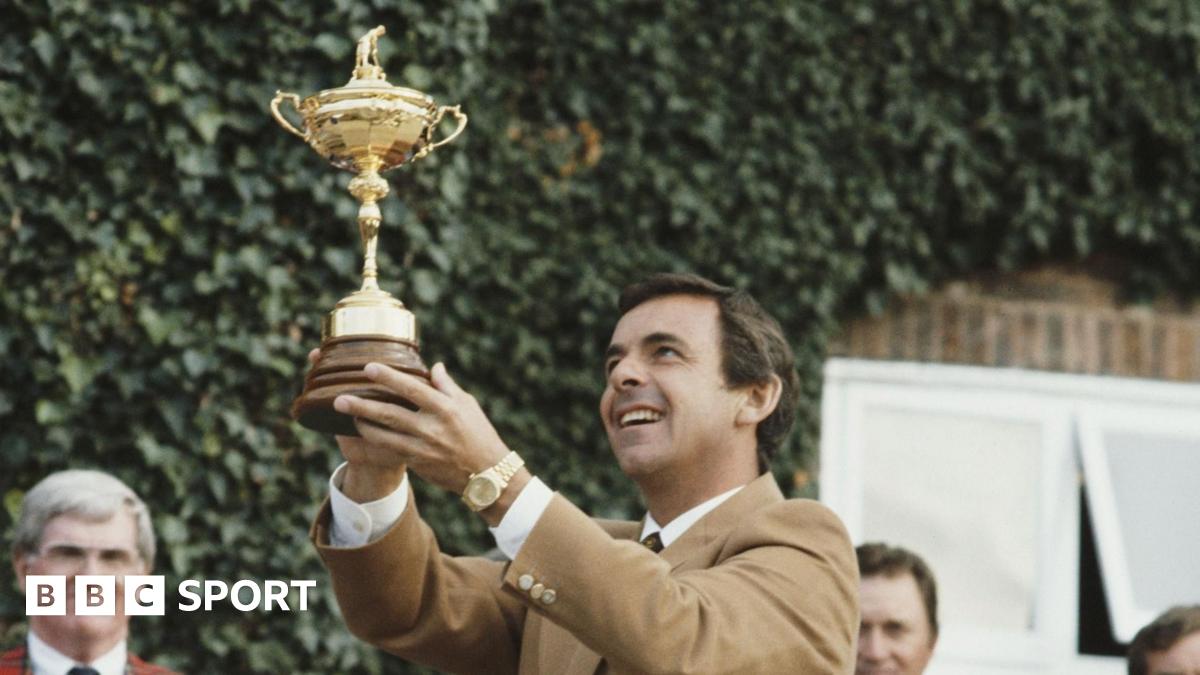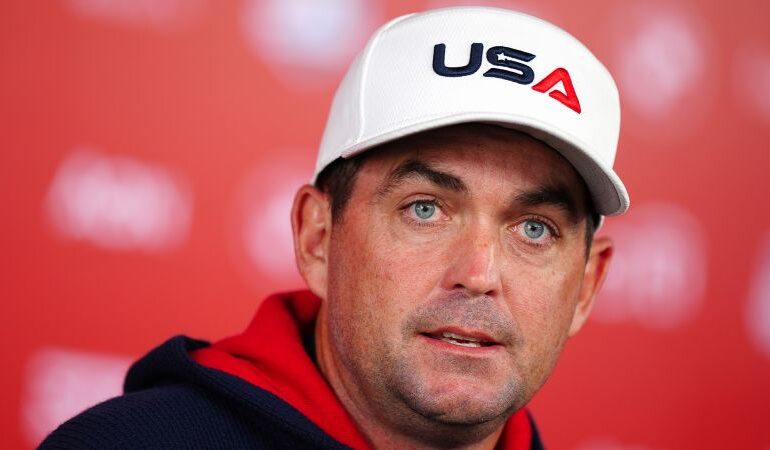Jacklin considered himself a winner, always striving for improvements. In 1969 he became the first Englishman in 18 years to win The Open. He followed that in 1970 by clinching the US Open. The only other Englishman to win both is Jim Barnes, in the 1920s.
But six of his seven Ryder Cup appearances ended in heavy losses.
The outlier was the 16-16 draw at Royal Birkdale in 1969, which was secured when Nicklaus conceded Jacklin’s three-foot putt on the last hole in what has gone down as one of sport’s great moments.
The margin of defeat was 15 points on his debut in 1967, and throughout the 1970s the gap was never fewer than five.
In 1977, the final match as GB&I, the number of matches was reduced.
Sir Nick Faldo, who won all three of his rubbers on his debut in that edition at Royal Lytham and St Anne’s, told BBC Sport: “We played only one session per day because they didn’t want the thought that America would be so far ahead that the singles would be obsolete.”
The US still won 12½-7½.
In came the European blood for 1979. Newly crowned Open champion Severiano Ballesteros and his fellow Spaniard Antonio Garrido bolstered the dozen heading to West Virginia. But little changed.
“We went to The Greenbrier and they didn’t know who we were or what to call it,” recalled Faldo. “I’ve got a little plate which has the International Ryder Cup on it.”
A sense of frustration was palpable in Jacklin as he recalled what turned out to be his final appearance as a player.
“It was all done on a shoestring budget,” he said. “It was all too similar to what I’d experienced before, when you couldn’t take your own caddie, the players wore anything they were given and thought their only job was to turn up.
“But the Americans were treated like kings. First-class travel, nice clothes.”
Jacklin also still rails against the “disruptive” behaviour of Mark James and Ken Brown at that Ryder Cup.
“They did every bloody thing they could to jeopardise our chances,” he said. “They were like spoilt children. They didn’t turn up to meetings at the right time, they wore the wrong clothes.
“They were a total disgrace, and I would have sent them home if I’d have been the captain.”
European skipper John Jacobs was also unimpressed, saying they turned up “dressed as though they were going on a camping holiday”.
James, who would go on to captain Europe to a narrow defeat at Brookline in 1999, received a £1,500 fine for “unprofessional conduct”.
Brown, who has forged a career as a successful TV commentator, later admitted “it wasn’t the greatest moment of my career”. He was fined £1,000 and given a one-year ban from international duty.
A US team that featured eight rookies and was without leading players Nicklaus, who failed to qualify, and Tom Watson – absent for the birth of his first child – still pulled away in the singles to win 17-11.
The 1981 edition was even more lopsided. Generally regarded as the best dozen ever assembled, with 11 players having won major titles, the US rampaged to an 18½-9½ victory at Walton Heath in Surrey.
Jacklin was left out of the side, with Jacobs preferring the “disgraced” James. Also on the sidelines, incredibly, was Ballesteros.
The mercurial Spaniard had become the first European to win the Masters in 1980, adding to his 1979 Open triumph, but was at loggerheads with the tour over appearance fees.
It was the final straw for Jacklin. “After that happened, I was done with the Ryder Cup,” he said.
“Seve was at his absolute zenith. He was Tiger Woods before Tiger Woods existed.
“I didn’t think they were interested in winning. I thought they were only interested in having a team that could get beaten up.”







